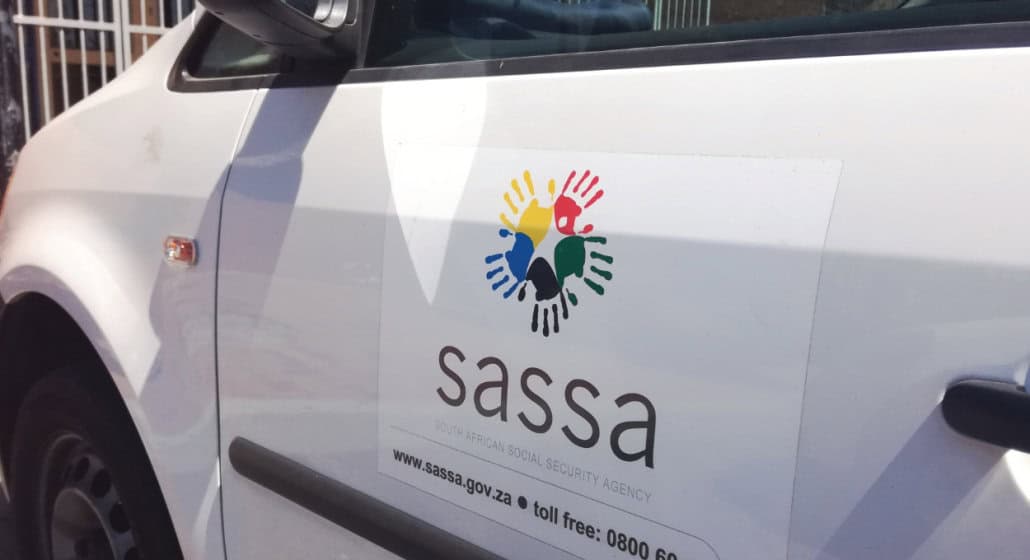Image: Barbara Maregele for GroundUp
Things may finally be heating up for corrupt Sassa officials, more than a decade after Corruption Watch (CW) helped expose widespread corruption in the distribution and payment of social grants.
In 2013 CW, as amicus curiae in the case between AllPay Consolidated Investment Holdings and the South African Social Security Agency (Sassa), contributed to the securing of a court order that set aside the awarding of a R10-billion tender by Sassa to Cash Paymaster Services (CPS) for the distribution and payment of social grants. The court found such awarding to be unlawful. In a second decision handed down in 2014, the court declared the contract for the payment of social grants between Sassa and CPS invalid, setting it aside and ordering that the tender process be re-run while emphasising that there must be no disruption to the payment of existing social grants to beneficiaries.
CW contributed to several further challenges to the Sassa/CPS arrangement, including one in 2015 asking the High Court to set aside Sassa’s then-CEO Virginia Petersen’s decision to make a payment of R316-million to CPS – an application that succeeded – and one that same year seeking a review of a request for proposals issued in respect of the re-running of the tender.
All this time, Parliament – one of whose existential functions is to hold the executive to account – was silent.
Until January 2025, when the portfolio committee for social development decided that it wanted a full investigation into the entire social grant payment system.
Parliament finally waking up to Sassa irregularities
The decision to investigate was communicated at a media briefing in mid-January, where committees in the social services cluster shared the progress of work undertaken since the seventh Parliament rose. The theme of the briefing was “Ensuring open access and provision of quality social services to the people.”
Social development committee chairperson Bridget Masango told attendees at the briefing that members were concerned about the integrity of the social relief of distress (SRD) and other grants that were administered by Sassa under the Department of Social Development, and wanted a comprehensive investigation
This sudden spurt of interest follows revelations from two Stellenbosch University students of the existence of serious vulnerabilities relating specifically to the application process of the R370-a-month SRD grant, in that fraudulent SRD applications were being made using the ID numbers of individuals who had recently turned 18. The pair shared their concerns before the committee in October 2024, prompting it to recommend that the matter be investigated.
The findings, shared at a follow-up committee meeting, revealed a “medium system threat level and identified various gaps in the SRD platform, including weak authentication, potential for fraud, and lack of encryption”, going further to recommend measures to address the vulnerabilities, including strengthening multi-factor authentication, limiting multiple applicants per phone number, enhancing mobile money verification, and implementing data encryption.
The investigation was on-going at that time.
“The committee is keenly awaiting the finalisation of the investigation on the weaknesses in the SRD grant application and payment system,” said Masango. “We started last year, and we are continuing with that because the committee is of the view that the investigation should be expanded to the entire system of application and payment of grants.”
The reason, she continued, is because fraudulent activities have been “prevalent in the system”. For example, said Masango, ID numbers are used for applications, therefore that the Department Of Home Affairs must also be involved. “There must be close working relationships with other sister departments that help in putting together these applications, one of which is the Department of Home Affairs.”
Extended investigation
The committee has accordingly extended the investigation, with the agreement of Minister Nokuzola Tolashe. This time it will allow for a much deeper investigation into the system. For the SRD investigation, the committee asked that it be concluded within 30 days but, said Masango, “we realised that the more you try and constrain and hurry up, the more things you leave out in the investigation.”
Masango also briefly addressed the long-standing issue of queues at Sassa branches, questions about opening the system to online applications for all grants (as opposed to the current situation of SRD grants only) which would be easier for many beneficiaries, understaffed Sassa branches, and concerns about the Sassa call centre. “We phoned half of all the offices of Sassa in the whole country, 212 to be exact … only one was answered with information. The others were just to tell people that they don’t know what they are talking about.”
The matter as a whole is a priority for the committee, she added.
In terms of consequences, Masango said that the first investigation revealed the involvement of officials, and they will “have to be brought to book”.
Just days after the media briefing, reports GroundUp, Sassa announced that it would suspend payment of the SRD grant to beneficiaries suspected of fraud, instead requiring them to verify their identities via the Know Your Client system, which uses biometrics in the form of facial recognition to positively identify beneficiaries. But this system has also been suspended, adds GroundUp, “leaving legitimate beneficiaries in the lurch”.

